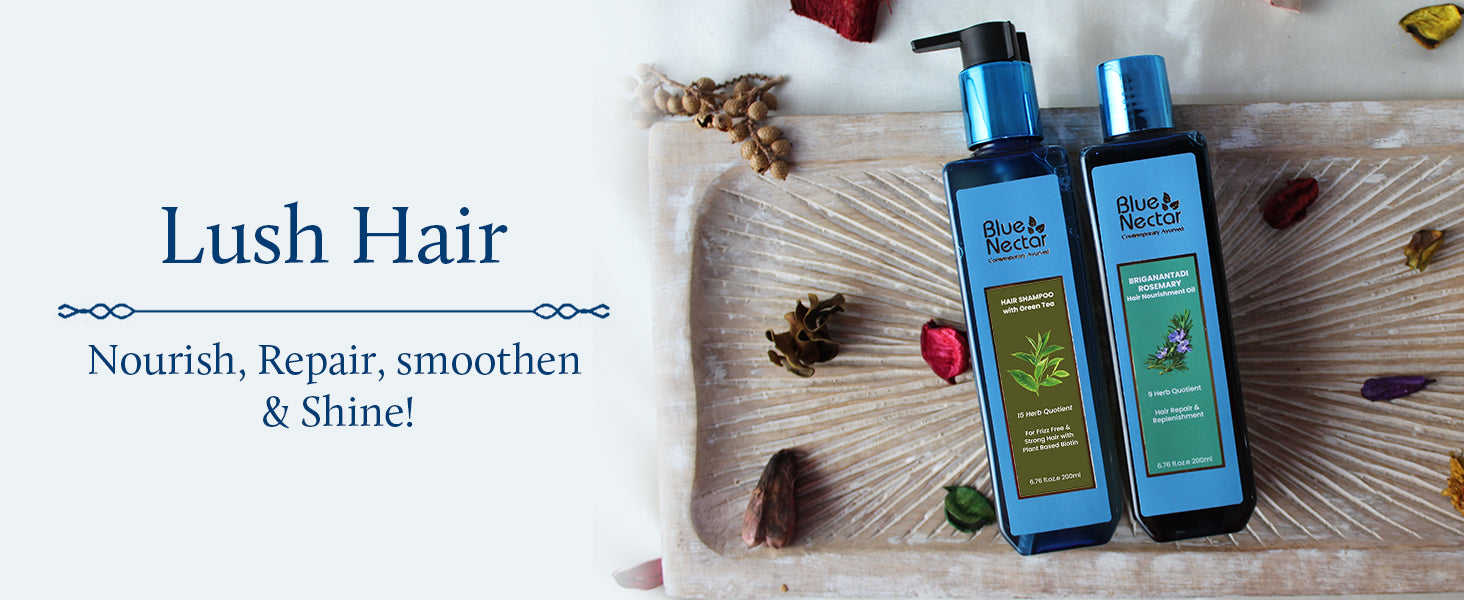
1. How do I deal with seasonal changes affecting my hair?
Adjust your hair care routine seasonally. For example, in winter, use moisturizing products to combat dryness, and in summer, protect hair from sun and chlorine exposure with UV-protectant sprays and conditioning treatments.
2. What can I do to improve hair health?
Healthy hair starts with a balanced diet rich in vitamins and minerals. Regular trims, minimizing heat styling, protecting hair from UV rays, and using quality hair care products tailored to your hair type all contribute to hair health.
3. What should I consider when choosing hair styling tools?
Select tools like brushes and combs based on your hair type—wide-tooth combs for curly or coily hair, and boar bristle brushes for straight hair to distribute natural oils evenly.
4. What type of shampoo should I use?
Choose a shampoo that matches your hair type. For instance, if you have dry hair, opt for a moisturizing shampoo. If your hair is oily, look for a clarifying shampoo. There are also shampoos specifically formulated for colored, damaged, or curly hair.
5. My hair is very frizzy. What can I do to tame it?
To control frizz, use anti-frizz serums or oils, avoid excessive heat styling, and consider using a silk or satin pillowcase. Regular deep conditioning treatments can also help keep your hair smooth and hydrated.
6. What causes hair loss, and how can I prevent it?
Hair loss can be caused by various factors, including genetics, stress, poor nutrition, and medical conditions. To prevent hair loss, maintain a balanced diet, manage stress, avoid harsh treatments, and consult a healthcare provider if you notice significant hair thinning.
7. Is it normal to lose hair every day?
Yes, it is normal to lose between 50 to 100 hairs per day as part of the natural hair growth cycle. If you notice excessive shedding or bald patches, it may be worth consulting a healthcare professional.
8. What is the best way to style my hair without heat?
You can use various heat-free styling techniques such as braiding, twisting, or using foam rollers. Air-drying and applying styling products like mousse or curl enhancers can also help achieve your desired look without heat damage.
9. How can I make my thin hair look fuller?
To make thin hair look fuller, use volumizing products such as mousses and root-lifting sprays. Blow-dry your hair with a round brush to add volume, and consider using hair extensions or a volumizing powder.
10. Can diet affect my hair health?
Yes, a balanced diet rich in vitamins and minerals, such as biotin, vitamin D, and omega-3 fatty acids, can promote healthier hair growth and overall hair health.
11. What are some tips for maintaining color-treated hair?
Use shampoos and conditioners designed for color-treated hair to prevent fading. Minimize heat styling and exposure to UV rays, and consider periodic deep conditioning treatments to keep hair hydrated and vibrant.
12. How do I care for my hair while swimming?
Before swimming, apply a leave-in conditioner or oil to protect hair from chlorine or saltwater damage. Rinse hair with fresh water immediately after swimming and follow with a hydrating shampoo and conditioner.
13. What are some tips for maintaining color-treated hair?
Use shampoos and conditioners designed for color-treated hair to prevent fading. Minimize heat styling and exposure to UV rays, and consider periodic deep conditioning treatments to keep hair hydrated and vibrant.
14. What are the key principles of Ayurvedic hair care?
Ayurvedic hair care involves using natural ingredients like herbs and oils that are suitable for your dosha. It emphasizes maintaining a healthy scalp, promoting blood circulation, and nourishing hair follicles.
15. What are some key herbs and oils used in Ayurvedic hair care?
Ayurvedic hair care utilizes herbs like Amla, Bhringraj, Brahmi, Neem, Hibiscus, and Shikakai, which are known for their hair-strengthening and nourishing properties. Oils such as Coconut oil, Sesame oil, Almond oil, and herbal-infused oils are also commonly used to condition and promote hair growthmmonly used to condition and promote hair growth.
16. How can I choose the right Ayurvedic hair care products for my specific hair type and concerns?
It's recommended to consult with an Ayurvedic practitioner or hair care expert who can assess your hair type, scalp condition, and specific concerns. They can recommend personalized products or herbal formulations tailored to your needs for optimal results.
17. How can I determine my dosha for personalized hair care?
Ayurveda categorizes individuals into three doshas—Vata, Pitta, and Kapha—based on their physical and emotional characteristics. A qualified Ayurvedic practitioner can help you determine your dosha through a consultation and recommend appropriate hair care practices and products.
18. Are there specific Ayurvedic routines or practices I should follow for healthier hair?
Yes, Ayurveda recommends regular scalp massages with herbal oils like coconut oil infused with herbs, using natural shampoos and conditioners, eating a balanced diet, and managing stress levels to maintain overall hair health.
19. Can Ayurveda help in regrowing hair in bald spots?
While Ayurveda may not reverse baldness completely, it can stimulate hair follicles and improve overall scalp health, potentially aiding in hair regrowth in some cases. Results vary depending on individual factors such as the cause of hair loss and consistency in treatment.






















































